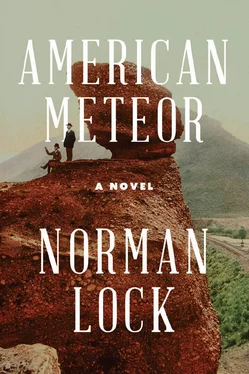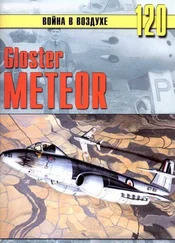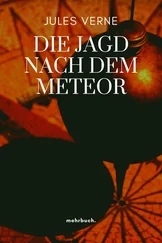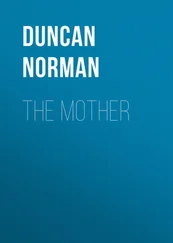Look, if your only escape from a grizzly bear is to jump into a canoe and push out onto the water, you don’t worry whose it is. And if the canoe’s rightful owner tries to stop you, you kill him. That’s what most people believe. More than likely, Jay, you do, too. And if I hadn’t wintered with the Ute, I’d probably believe the same.
Two weeks later, we crossed the border into Montana and turned south. The next day, we entered Wyoming Territory. We followed the Belle Fourche River into southwestern Dakota and then skirted the north side of the Black Hills. I remember summer meadows brilliant with wildflowers. The men decorated their horses’ bridles, laughing gaily like cavaliers on a picnic. Custer wore yellow monkey flowers in his long golden hair. At the Belle Fourche, I photographed him in his tent. He was writing accounts of the expedition for various newspapers and magazines and wanted a “thoughtful” picture to accompany his stories when he sent them east.
“Moran, we have discovered a rich and beautiful country,” he said, stabbing the inkwell with his pen — a gesture made to illustrate what he meant to do with the country’s inhabitants. (To tell Custer that the Black Hills had already been discovered by the Lakota would have been the same as a Roman slave’s insisting, “I’m sorry, Caesar, but you haven’t discovered Gaul; you’ve only stolen it.”)
I bit my tongue and waited. Was it for this that Spotswood had told me to wait? To kill Custer? I’d made up my mind to finish him off, before there was not a bison left anywhere in America, except for those that would be herded into cattle cars and sent east to Buffalo Bill’s Wild West show. To be honest — a nearly impossible virtue for human beings, no matter if they wear a sheriff’s star or a parson’s collar — the slaughter of the buffalo and the nine hundred Indian ponies on the bank of the Washita River infuriated me more than the reduction of the Indians. I suppose my sympathies are not uncommon even in the present age, when a brute will sometimes weep over a dead dog.
At the end of July, we stopped at French Creek, after a three-hundred-and-thirty-mile plod from Fort Lincoln, along what the Sioux called “Thieves’ Road”—after Custer, whom Red Cloud had named “the Thief.” On the first of August, the mining engineers found a gold band thirty miles wide that the general might give to posterity, like a wedding ring. The expedition would alchemize the once worthless Black Hills. Speculators and prospectors, store- and saloonkeepers, gamblers and whores, claim jumpers and road agents would pile in, insisting that the “Indian dogs in our manger” be swept aside.
The general wanted his discovery commemorated, and I obliged with a photograph of him handing a message to Charley Reynolds, his chief scout, who carried the news to Fort Laramie. From there, it lit out by telegraph to the states back east and to the papers. Custer would glory, bask, and wallow in his fame for the rest of his life, which was, thankfully, short.
By winter, fifteen thousand emigrants had already arrived in the Black Hills — too many for the army to oust or for the Indians to kill. In the spring, Red Cloud and other of the Lakota’s most illustrious chiefs went to Washington to protest against the incursion into their most hallowed ground. They were feted by their Great White Father; they ate off china plates. They were shown the city — even treated to an artillery salute, intended, perhaps, as a demonstration of American military strength. Their entreaties were ignored. Red Cloud and the others returned to the Sioux Reservation, their hope of gaining the president’s sympathy now a forlorn one. Grant issued an executive order to clean out the Black Hills of “hostiles.” It would be open season on the last buffalo herds. After this piece of treachery, I didn’t much care for Grant. I considered sending him my medal once again, but something told me I’d have need of it.
“Moran, I want you to take a picture of me at the summit of Harney Peak.”
“A fine idea, General.”
“I want it to insinuate in the minds of all who see it that at Custer’s feet lie the immense riches of a new world. For that is what it is, Moran. A new and glorious world.”
“I can do that, sir. I’ll take it with the sun shining on the land, as if God Almighty Himself were sanctifying it for the United States!”
“So long as the light also shines on me.”
Increasingly in my presence, he would drop the affectation of referring to himself as “Custer”—most likely because he ceased to regard me as someone apart from himself. I was absorbed into the Custer persona; he expropriated me just as he intended to steal — by force of eminent domain — the Black Hills from the Indians. Or maybe I was no more than a camera operated by his own inordinate egotism.
“Naturally, General.”
I’d also make a glass plate of the summit undefiled by Custer’s presence and would later send it to Walt Whitman.
William Jackson once said that photography makes ghosts of the world and that each picture shrinks the subject. He wasn’t talking about its representation — not entirely; he meant that the subject matter itself grew smaller each time it was photographed. A mountain was diminished by every exposure. After a while, it would have no more substance than cottonwood lint or ideas in the mind of somebody who didn’t much care to use it. If you took enough pictures of the West, the West would disappear. People would prefer to see life through their stereopticons. At the time, I didn’t have the faintest idea what he was talking about; but after having taken so many pictures for so many years, I’ve come to understand him. I regret having allowed myself, through funk and faintheartedness, to shrink before his eyes during that famishing winter when I spent nearly all my life’s allotment of love.
Known by the Lakota Sioux as Six Grandfathers (the place where Black Elk had his vision of the still point of the turning world), Harney Peak was named for General William S. Harney, hero of the Battle of Ash Hollow, waged against the Sioux, who called him “Woman Killer.” It was renamed Mount Rushmore to honor a New York City pettifogger during a pleasure excursion in 1885. By then, Crazy Horse had been killed, and Red Cloud was an old man living on a reservation, impoverished and forgotten. On Harney Peak, the gigantic likenesses of Washington, Jefferson, Lincoln, and Teddy Roosevelt will one day be carved in granite. The idea that the head of Red Cloud — the great Lakota war chief who signed the Treaty of 1868 to preserve the land and bison for his people — should be included among them will be rejected.
Red Cloud said, “God placed these hills here for my wealth.”
Custer said, “One day this land will be worth so much, you won’t be able to buy its dust.”
Sitting Bull said, “I won’t sell even so much of my land as the dust.”
Crazy Horse said, “One does not sell the land on which the people walk.”
Crazy Horse appeared to me many times during the year when I thought my head would break open like an egg and my addled brain slip out onto the pillow, damp from fever dreams. That was the year I was nearly driven insane by terrifying premonitions.
Black Elk said, “I saw that the sacred hoop of my people was one of many hoops that made one circle, wide as daylight and as starlight, and in the center grew one mighty flowering tree to shelter all the children of one mother and one father. And I saw that it was holy.”
Red Cloud said, “The white men made us many promises, more than I can remember. But they kept one: They promised to take our land, and they took it.”
I’d promised myself that I would put an end to Custer, but it’s hard to kill a man in cold blood. Especially a man I found — in spite of myself — fascinating. My perfect hatred for him was spoiled by a particle of envy. There was something of Lincoln in my makeup — if you’ll forgive my presumptuousness — and also something of Custer. Later on, Crazy Horse would muddle me even more. I would kill the general, but I’d have to work myself up to it.
Читать дальше












